Ever wondered why liver health is so important for your overall health? Your liver does a lot to keep you healthy. It works hard to break down nutrients and clean out harmful stuff from your body.
The American Liver Foundation says knowing how the liver works is key to staying healthy. It’s important for processing nutrients, making proteins, and controlling liver enzymes. But what happens if the liver can’t do its job?
Learning about the liver’s role in cleaning and breaking down food can help you understand your health better. It shows how your daily habits affect this vital organ. Are you ready to learn more about this hardworking part of your body?
This guide will teach you about the liver’s daily tasks and how to support it. This way, you can keep your liver healthy for the long term.
Quick Recommendation: Our blog takes you through the liver and its many functions. If you're interested in liver supplementation, we recommend Liver Guard Plus.
Introduction to the Liver
Welcome to a journey into the liver, a key organ in your body. It sits in the upper right side of your abdomen. The liver is vital for your health, thanks to its complex structure. It performs over 500 functions, making it the body’s “chemical factory.”
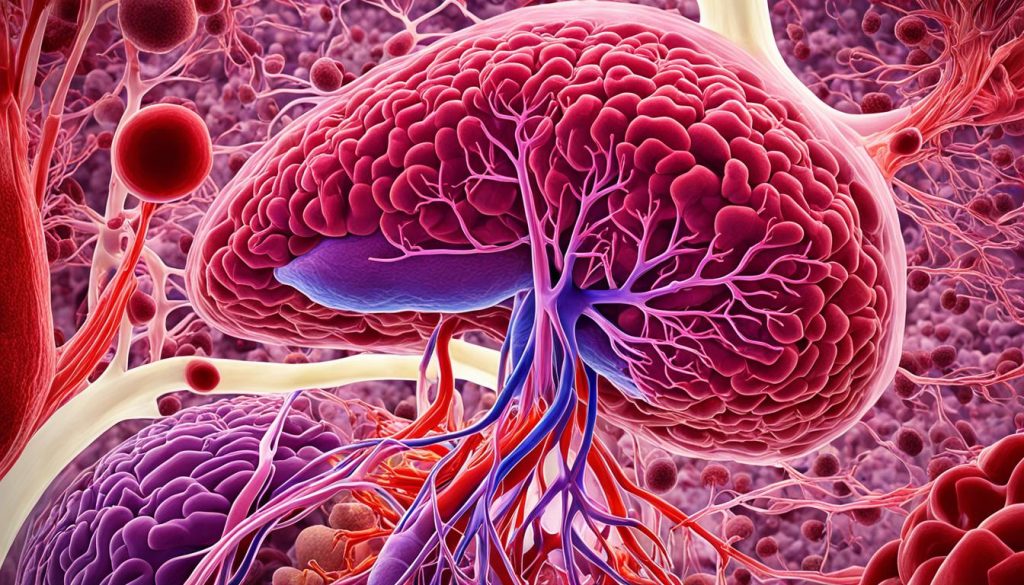
Many people think liver diseases only hit those with bad habits. But they can come from genes, infections, and more. To learn more, check out trusted sites like the Mayo Clinic. They offer great info on liver health and how to keep it in check.
Key Functions of the Liver
The liver is a vital organ that keeps you healthy. It makes bile, which helps digest fats and remove waste. Without enough bile, your body would have trouble breaking down food.
Liver function tests check how well your liver is working. These tests look for issues early. They check for enzymes, proteins, and bilirubin in your blood to see if your liver is doing its job.
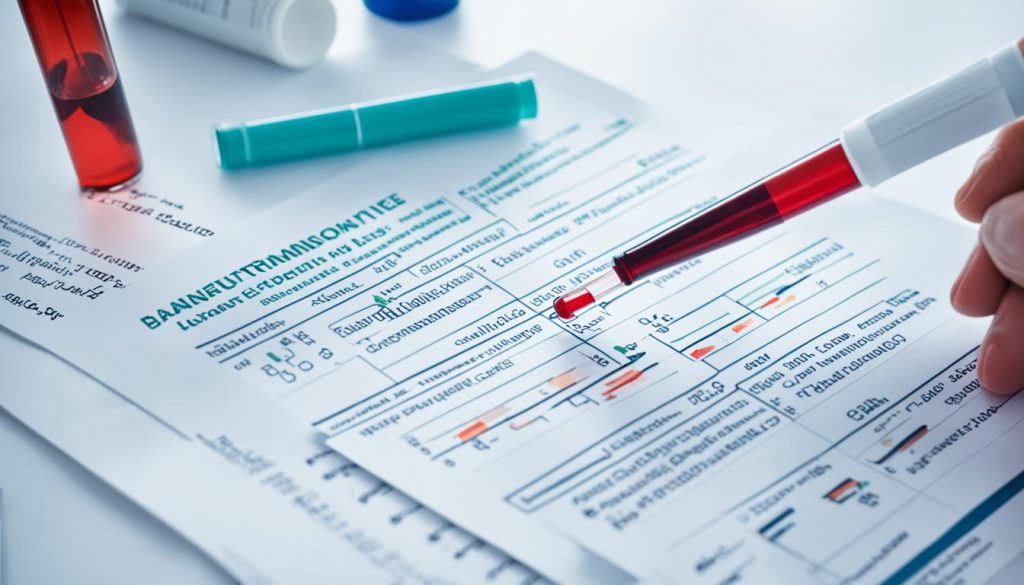
The liver can also regenerate itself, which means it can heal from damage. This is unique among organs. Knowing about liver regeneration helps in treating liver problems and keeping it healthy.
The National Institute of Diabetes and Digestive and Kidney Diseases (NIDDK) says the liver is key to life. It’s important to keep your liver healthy for its many tasks. This includes making bile, doing liver function tests, and regenerating itself.
Anatomy of the Liver
The liver sits in the upper right part of your belly. It has four main lobes: left, right, caudate, and quadrate. These lobes are split into smaller parts, which is important for surgery and transplanting the liver. Knowing about these parts helps surgeons work safely and effectively.
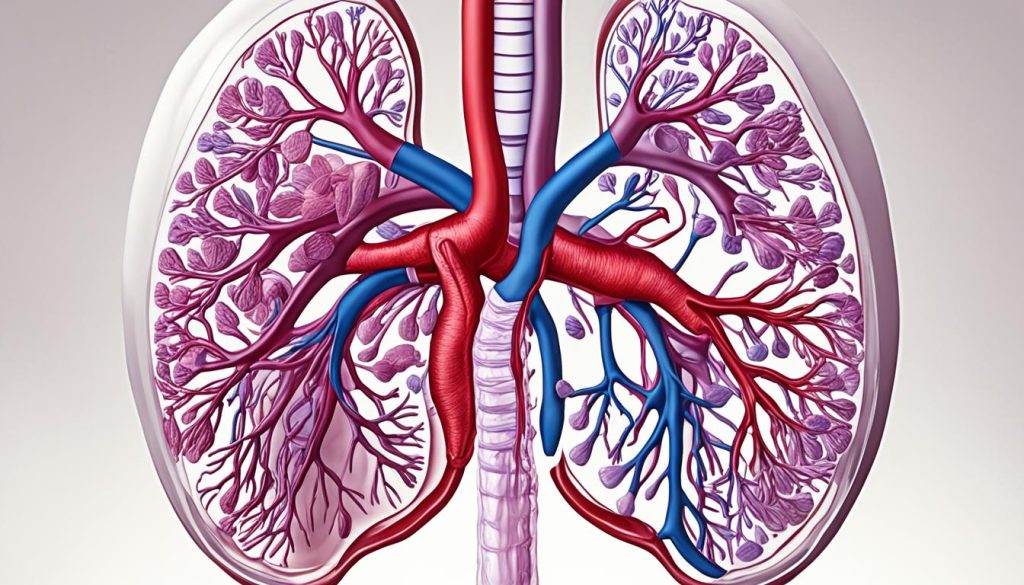
Inside the liver lobes, there are millions of cells called hepatocytes. These cells are vital for cleaning toxins from the blood, making bile, and storing important nutrients. They can even grow back if damaged, which helps the liver heal quickly.
The liver gets its blood from two main sources: the hepatic artery and the portal vein. The hepatic artery brings oxygen-rich blood from the heart. The portal vein carries nutrient-rich blood from the digestive system. This mix of blood is key for the liver’s many tasks.
The liver has special systems for blood and bile flow. The vascular system, with veins and arteries, keeps blood moving for nutrient processing and cleaning. The biliary system, with bile ducts, sends bile to the gallbladder and small intestine to help with digestion.
Johns Hopkins Medicine offers detailed information on these topics. They highlight how each part of the liver is crucial for our health and well-being.
How the Liver Processes Nutrients
Your liver is key in metabolism, handling important chemical reactions needed for life. It turns extra glucose into glycogen for storage. This keeps your body ready for energy, even when you’re not eating.
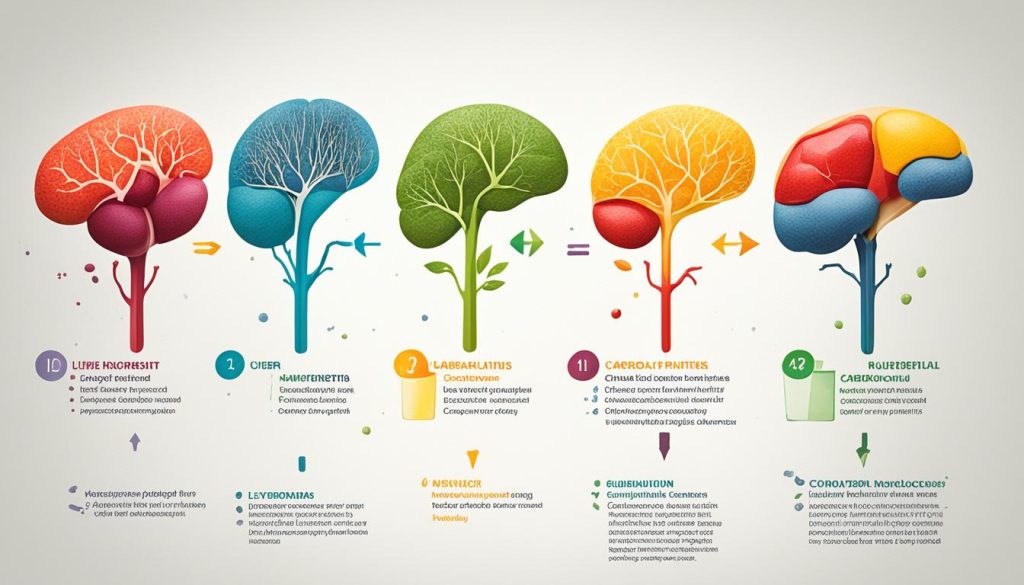
Your liver also plays a big part in making sure your body gets rid of toxins. When you eat, it changes and cleans the nutrients. This way, only good stuff gets into your blood, and bad stuff like toxins is removed or changed.
The liver doesn’t just work on carbs; it’s also important for fat metabolism. It keeps cholesterol levels in check, which is good for your heart. By turning fats into energy and managing cholesterol, it keeps you feeling energetic and your heart healthy.
As the Cleveland Clinic points out, the liver does a lot to help your body work right. It’s key in getting rid of toxins and storing glycogen. If these processes go wrong, it can lead to health problems. This shows how vital the liver is for your overall health.
Quick Recommendation: Our blog takes you through the liver and its many functions. If you're interested in liver supplementation, we recommend Liver Guard Plus.
Common Liver Disorders
The liver is a vital organ that plays a big role in our health. Diseases like hepatitis, cirrhosis, and fatty liver disease can affect it. These conditions make it hard for the liver to work right and can cause serious problems if not treated.
Hepatitis is an inflammation of the liver often caused by viruses such as hepatitis A, B, and C. These viruses can cause short-term or long-term inflammation. This makes it hard for the liver to clean the blood, digest fats, and make proteins for clotting. Finding and treating it early is key to avoiding worse liver damage.
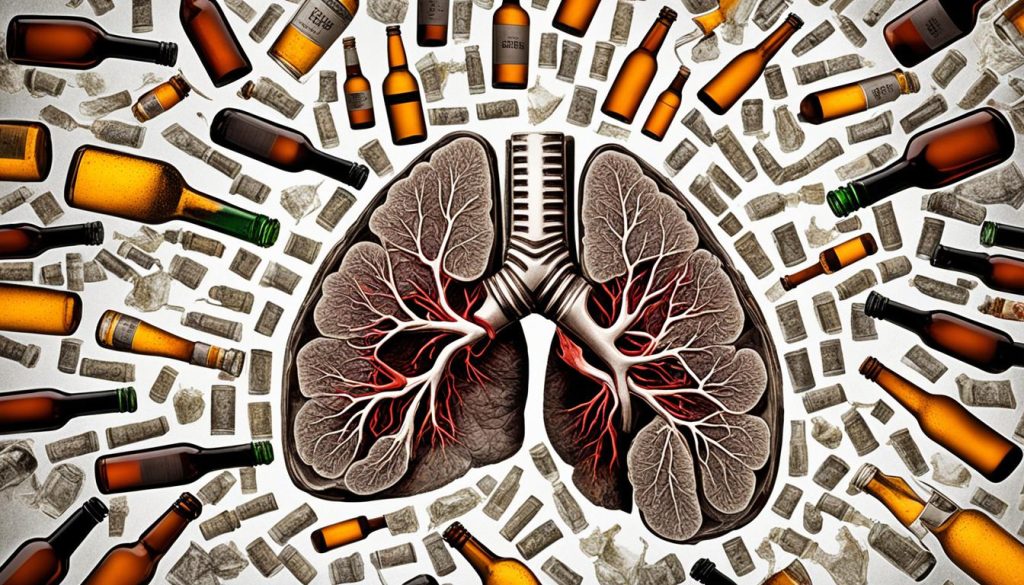
Cirrhosis is a serious condition that happens when the liver gets damaged over time. It can be caused by things like too much alcohol, hepatitis, or fatty liver disease. As time goes on, scar tissue replaces healthy liver tissue. This blocks blood flow and harms liver functions. The Centers for Disease Control and Prevention say cirrhosis is a top cause of liver deaths, so knowing about it and preventing it is important.
Non-alcoholic fatty liver disease (NAFLD) is becoming more common and is linked to being overweight, having diabetes, and metabolic syndrome. It means too much fat builds up in liver cells. It can be mild or severe, causing inflammation and damage. Changing your diet and exercising can help manage and even reverse NAFLD.
Maintaining a Healthy Liver
Keeping your liver healthy is key for your overall health. A great way to support it is by eating well. Include lots of fruits, veggies, lean meats, and whole grains in your meals. This helps your liver work right.
Drinking alcohol in moderation is also important. Too much can hurt your liver and cause serious diseases like cirrhosis. By drinking less, you lower your risk of liver problems.
Some people take liver supplements to help their liver. Supplements like milk thistle might be good for you, but talk to a doctor first. The American Liver Foundation says some supplements could actually be harmful.
Preventing liver diseases means taking action early. Getting vaccinated against hepatitis A and B can protect you from infections that can harm your liver. Regular doctor visits can catch liver problems early, making treatment easier.
By eating well, drinking less alcohol, and thinking carefully about supplements, you can keep your liver healthy. Always get advice from doctors to find the best way to care for your liver.
Signs of Liver Problems
It’s important to know the signs of liver problems for early treatment. Jaundice, which makes your skin and eyes turn yellow, is a common symptom. You might also feel liver pain as a dull ache in the upper right side of your abdomen. Blood tests can show abnormal liver enzymes, which means your liver cells might be inflamed or damaged.
There are other signs of liver disease that are less common. If your stool looks pale or clay-colored, it could be a sign. Swelling in your legs and ankles, known as edema, might also indicate liver issues.
If you see any of these signs, you should get medical help right away. The Mayo Clinic says to see a doctor if you’re tired all the time, losing weight without trying, or showing signs of jaundice. Catching liver problems early can really help with treatment.
Conclusion
Understanding how the liver works is key to knowing its role in your health. It’s vital for processing nutrients, cleaning out toxins, and helping with metabolism. Keeping your liver healthy is crucial for your overall well-being and helps prevent diseases.
This article covered the liver’s structure, its main jobs, common liver issues, and how to keep it healthy. By learning about these topics, you can take steps to protect your liver. Eating right, exercising, and not drinking too much alcohol can all help your liver work better and prevent diseases.
Living a healthy lifestyle is essential for a strong, working liver. WebMD talks about why liver health matters and offers tips to prevent liver diseases. Following these tips can improve your liver function and boost your health.
Being proactive about your liver health has long-term benefits. By staying informed and careful, you can make choices that help your liver do its job well. Your liver is crucial for your body’s health, and taking care of it leads to a better life.
Quick Recommendation: Our blog takes you through the liver and its many functions. If you're interested in liver supplementation, we recommend Liver Guard Plus.
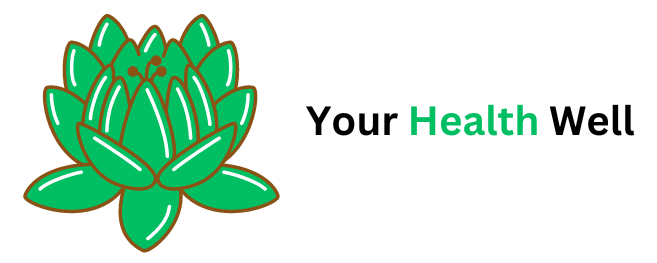
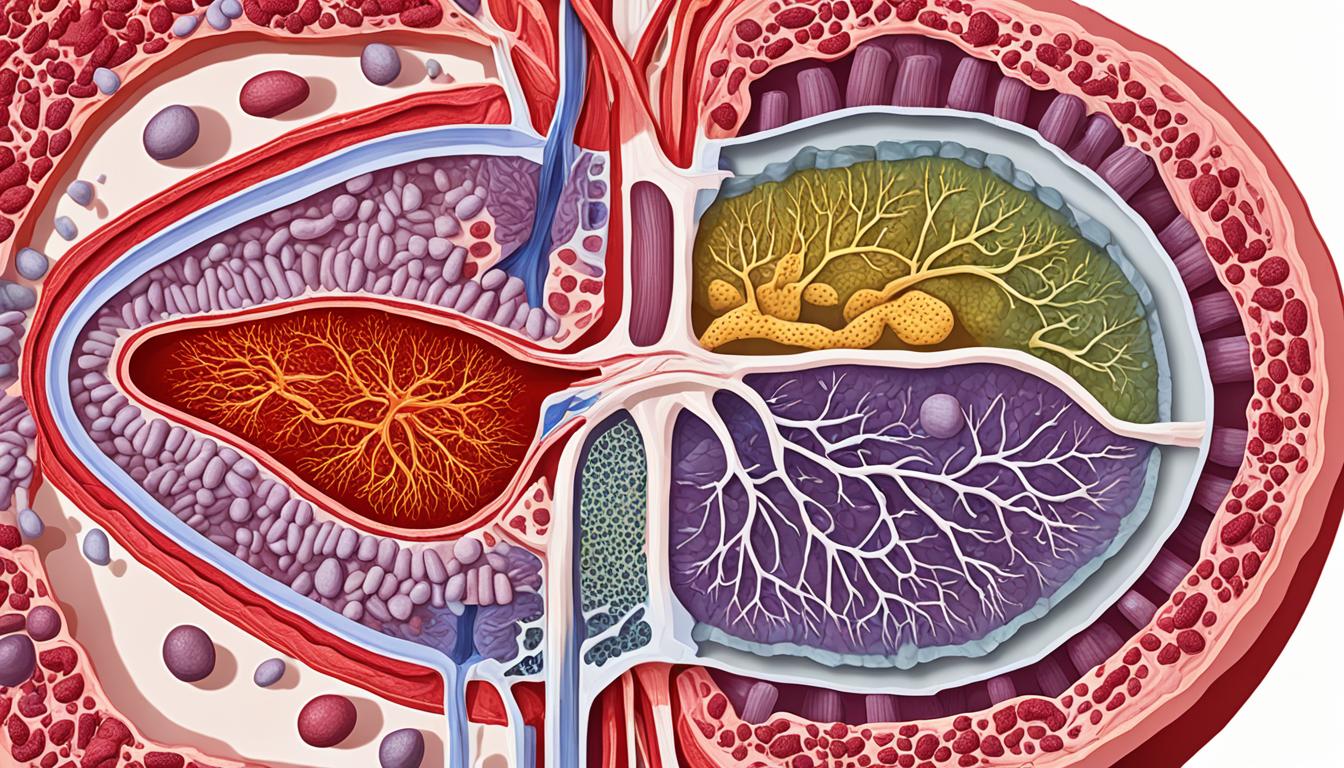
Your article helped me a lot, is there any more related content? Thanks!